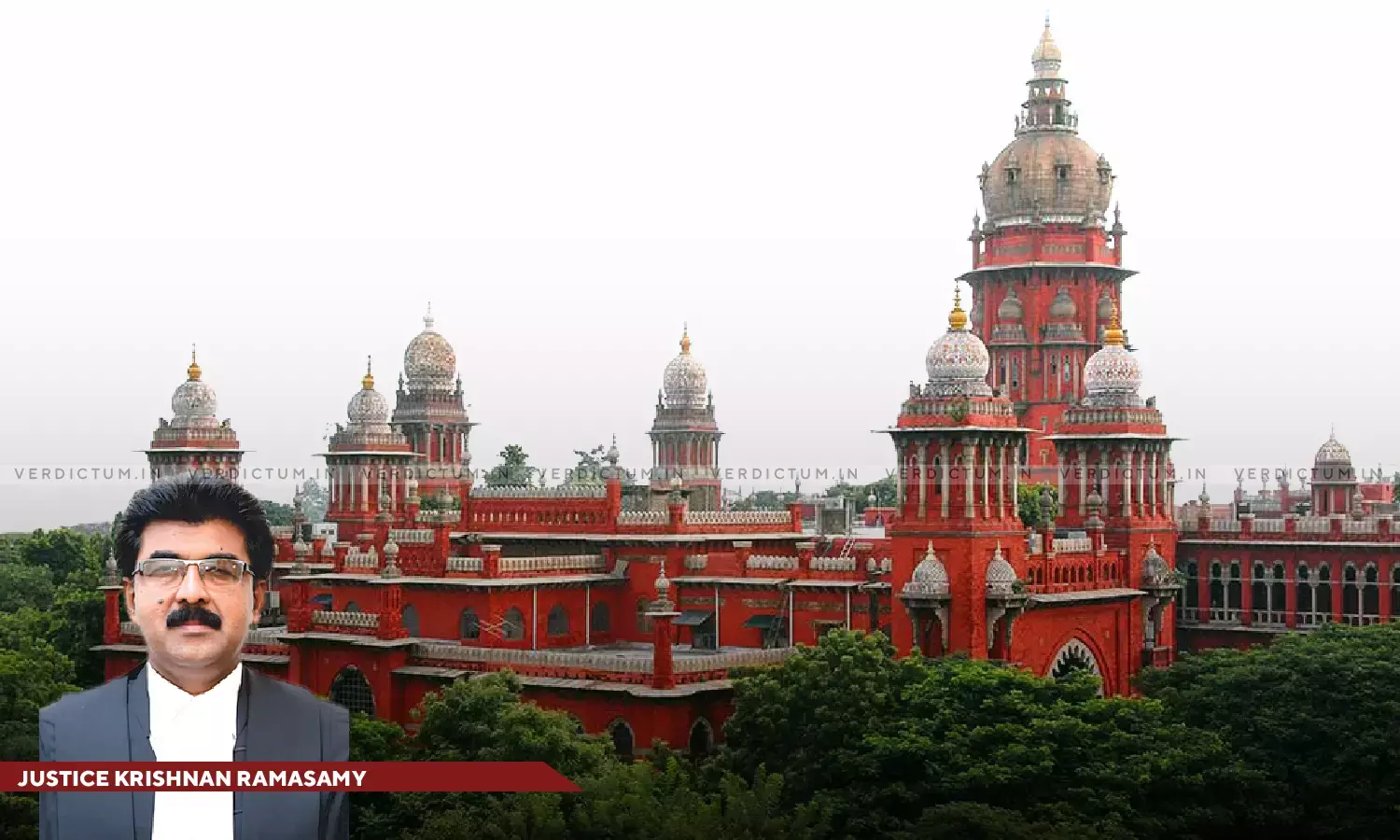Issue Of Levy Of GST On Residential Accommodation Should Be Viewed From The Perspective Of Recipient Of Service: Madras HC

Justice Krishnan Ramasamy, Madras High Court
The Madras High Court has observed that the issue of the levy of GST on residential accommodation should be viewed from the perspective of the recipient of service and not from the perspective of the service provider who offers the premises on a rental basis.
In that vein, holding that renting out hostel rooms to female students and working women exclusively for residential purposes will be exempt from GST, the Bench of Justice Krishnan Ramasamy observed that, "While adverting to the imposition of GST on hostel accommodation, it has to be looked into as to whether the inmates of the hostel rooms, are using the premises as their residential dwelling or commercial purpose since renting of residential unit attracts GST only when it is rented for commercial purpose. So, in order to claim exemption of GST, the nature of the end-use should be 'residential' and it cannot be decided by the nature of the property or the nature of the business of the service provider, but by the purpose for which it is used i.e. 'resident dwelling' which is exempted from GST. Therefore, this Court is of the considered view that the issue of levy of GST on residential accommodation should be viewed from the perspective of recipient of service and not from the perspective of service provider, who offers the premises on rental basis."
In furtherance of the same, it was also said that, "it is clear that the renting out the hostel rooms to the girl students and working women by the petitioners is exclusively for residential purpose, this Court is of the considered view that the condition prescribed in the Notification in order to claim exemption, viz., 'residential dwelling for use as residence' has been fulfilled by the petitioners and thus the said services are covered under Entry Nos.12 and 14 of the Notification No. 12/2017-Central Tax (Rate) dated June 28, 2017, the petitioners are entitled to be exempted from levy of GST."
Counsel Aparna Nandakumar appeared for the petitioner, while Senior Standing Counsel AP Srinivas, along with others, appeared for the respondents.
The Court heard a group of pleas filed by operators of private ladies' hostels challenging the decision of the Tamil Nadu State Appellate Authority for Advance Ruling, which denied them exemption from paying GST.
The hostel owners argued that since they provided residential accommodation akin to residential dwellings, the charges they collected should be exempt from GST. They cited a Karnataka High Court decision that exempted services provided by leasing residential premises as hostels for students and professionals.
The Additional Advocate General countered by stating that a Special Leave Petition had been filed against the Karnataka High Court decision, making it inappropriate to refer to it. The argument further contended that the services provided by the petitioners did not qualify as residential dwellings because they rented out single rooms to multiple individuals for varying durations for monetary gain. Additionally, it was asserted that running hostels required licenses and permits, unlike renting out residential spaces, indicating that hostel buildings could not be classified as residential dwellings but rather as non-residential complexes.
The Court also observed that the 'hostel services' provided by the petitioners to the girl students and working women would squarely amount to the 'residential dwelling', and accordingly, the same will be squarely covered under Entry No.12 of Exemption Notification No.12 of 2017.
Consequently, the petitions were allowed.
Appearances:
Petitioner: Counsel Aparna Nandakumar
Respondents: Senior SC AP Srinivas, Senior Panel Counsels Rajanish Pathiyil, Sai Srujan Tayi, Counsel B Ramanakumar, Addl. AG-1 Haja Nazirudeen
Cause Title: Thai Mookambikaa Ladies Hostel vs Union of India & Ors.
Click here to read/download the Judgment

